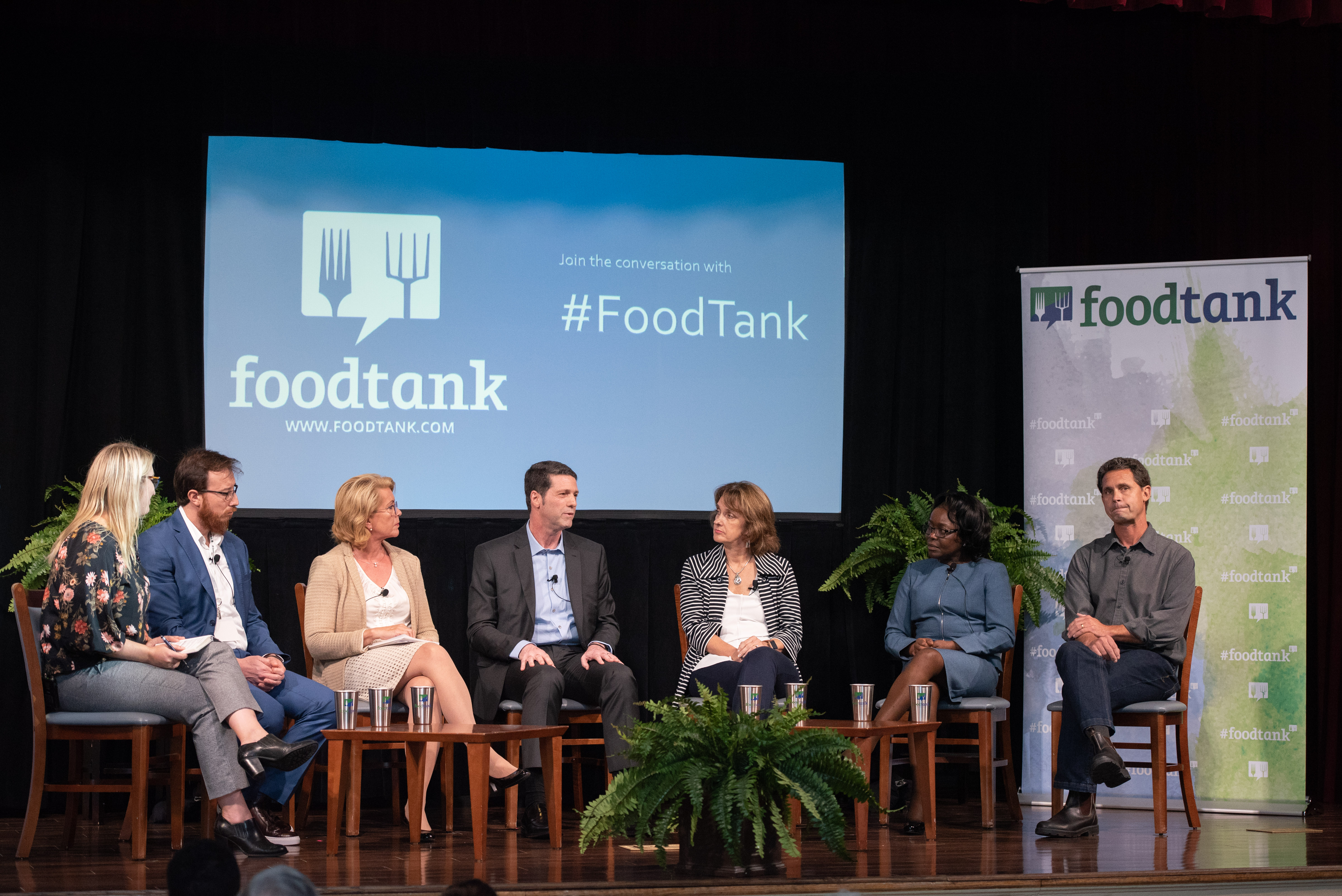“The problem with food waste is that it’s everyone’s responsibility, so it’s no one’s responsibility,” said Chris Cochran, executive director of ReFED, the multi-stakeholder nonprofit organization committed to reducing US food waste.
Cochran was speaking at a panel on improving food recovery at the second annual Food Tank Summit in New York City. The Summit’s theme was “Focusing on Food Loss and Food Waste,” bringing in players from all parts of the food system, from farmers and activists, to entrepreneurs and investors, to policymakers and corporate leaders. More than 35 speakers and panelists took the stage in the day-long Food Tank event.
“Food waste is a hairy, complex problem that requires everyone to be involved,” said Roy Steiner, managing director for Food at The Rockefeller Foundation. And panelists throughout the day mimicked this sentiment: “The solutions are in the connection in the entire chain,” said Tobias Grasso, North American President of Food Care at Sealed Air, the packaging company.
If food waste was a country, it would be third-largest emitter of greenhouse gas after China and America. And for this enormous problem, there are an enormous number of solutions and opinions, a wide range of which were represented at the Summit. Much of the conversation touched on where in the food system the most food loss and food waste occurs.
While many food recovery solutions focus on recovering excess food from restaurants and bringing to those in need, that’s just one level of the system. As New York Times reporter Julia Moskin pointed out at the Food Tank event, “Restaurants are very low waste because they need to make money—that’s why restaurants use the nose of the pig because it affects their bottom line.”
“The root cause of food waste isn’t what you do in your kitchen, or even what we do in our restaurants—it’s at food production,” said Marion Nestle, professor of Nutrition, Food Studies, and Public Health, Emerita, New York University. “Our food system is designed to be wasteful.”
To help correct these issues, consumer awareness is key. Many speakers agreed that when eaters value their food more, food waste starts to feel unnatural.
“We need to spend more money on food,” said Marco Canora, chef and founder of Brodo, a bone broth company. By producing cheap food, “we’re not paying the external costs—we pay for them in environmental cleanup, we pay for them in obesity,” Nestle said.
At a critical juncture for the food industry, it’s becoming clearer that changes need to be made to reduce the food system’s impact on the human health and the environment—and food waste plays a major role here.
From using deep learning for produce inspection to in-store retail tech, agtech companies are innovating across the food chain to reduce food loss and food waste. But when it comes to devoting resources, not all agtech solutions should hold equal weight.
“I’m tired of the next app,” Nierenberg told AgFunderNews in an interview last year. “We need real solutions and they can be a combination of high and low tech … combining traditional knowledge and techniques farmers are using on the ground and applying those with different technologies that might be used from a cell phone, a drone and so on.”
Click here to watch the full 2018 NYC Food Tank Summit online.





